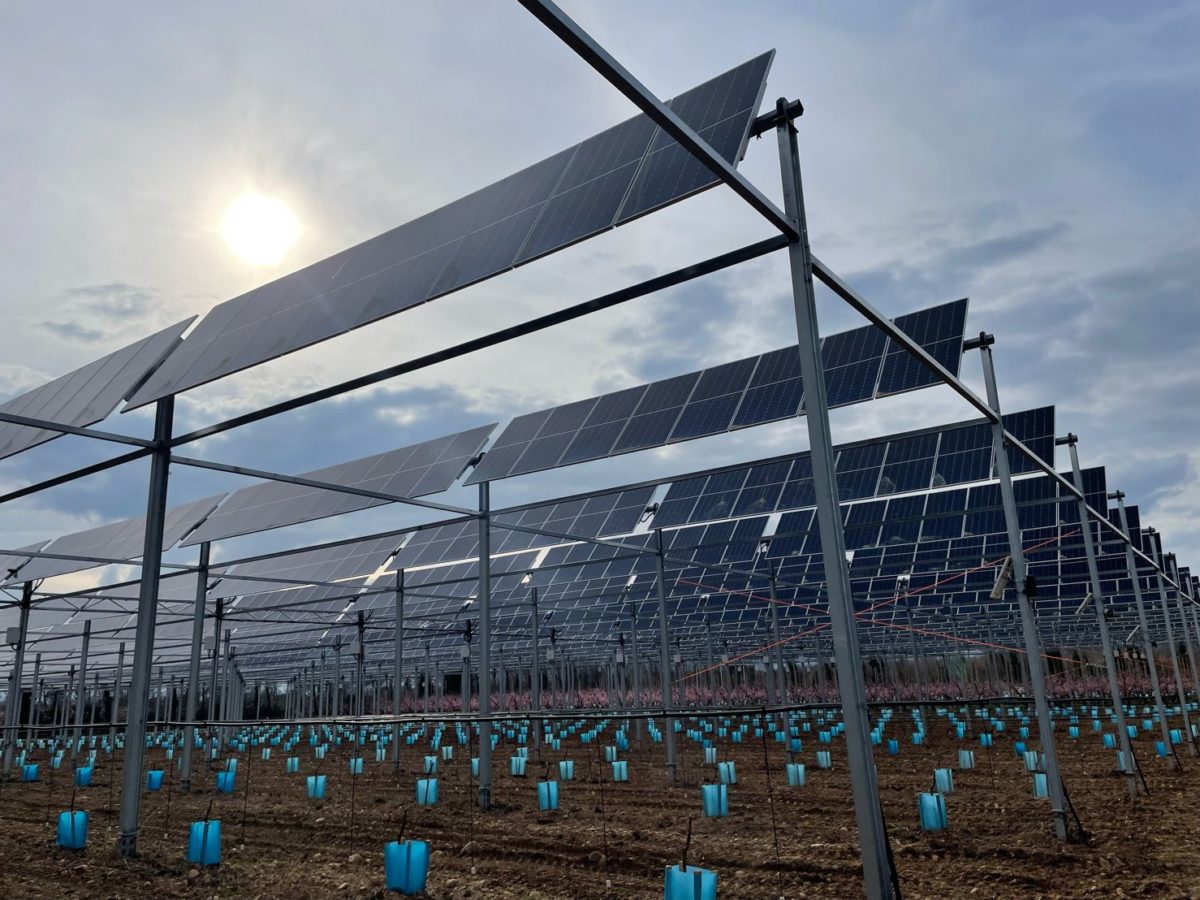From pv magazine France
French agrivoltaics specialist Sun’Agri is developing a pilot project combined with the cultivation of peaches, apricots, and cherries in the Rhone Valley, in the French southern department of Drôme, where these products are traditional crops.
The Rhône Valley, on the other hand, suffered for several years from the increasing effects of climate change, such as high temperatures and droughts in summer, spring frosts, and violent hailstorms, among others. These phenomena threaten the local agricultural ecosystem, forcing producers to find effective and accessible adaptation solutions in the short term.
The aim of the demonstrator is to find solutions to protect crops from climatic hazards, optimize production and agricultural quality, as well as to establish references for technical and economic aspects of arboriculture. “For the first time in our department, the Chamber of Agriculture of the Drome is supporting an experimental project in agrivoltaics in order to obtain scientific references for the arboriculture sector,” said the organization's president, Pierre Royannez. “The objective is to validate whether or not it is possible to reconcile agriculture and energy production without distorting agricultural production.”
The €2.5 million project includes a demonstrator plant and an experimental array for a total area of nearly four hectares.
The first project, with an area of 2.6 hectares, will have a capacity of 1.9MW and will be based on agrivoltaic shades. It will be equipped with anti-hail nets that deploy automatically in the event of a hail storm and will be aimed at growing seven types of apricots, cherries and nectarines.
The experimental array will be deployed on an area of 1,850m² and will be combined with the cultivation of Kinoléa peaches. The Chamber of Agriculture of the Drôme will carry out the agronomic monitoring of the fruit crops protected by the installation. “With this installation in Etoile-sur-Rhône, we will be able to determine very precisely how fruit crops in the region react to climate change and, above all, how our technology can protect them from the various potentially dramatic hazards for farmers,” said Cécile Magherini, deputy CEO of Sun'Agri.
The electricity generated by the agrivoltaic installations will benefit local businesses and communities through a power purchase agreement.
This content is protected by copyright and may not be reused. If you want to cooperate with us and would like to reuse some of our content, please contact: editors@pv-magazine.com.




By submitting this form you agree to pv magazine using your data for the purposes of publishing your comment.
Your personal data will only be disclosed or otherwise transmitted to third parties for the purposes of spam filtering or if this is necessary for technical maintenance of the website. Any other transfer to third parties will not take place unless this is justified on the basis of applicable data protection regulations or if pv magazine is legally obliged to do so.
You may revoke this consent at any time with effect for the future, in which case your personal data will be deleted immediately. Otherwise, your data will be deleted if pv magazine has processed your request or the purpose of data storage is fulfilled.
Further information on data privacy can be found in our Data Protection Policy.